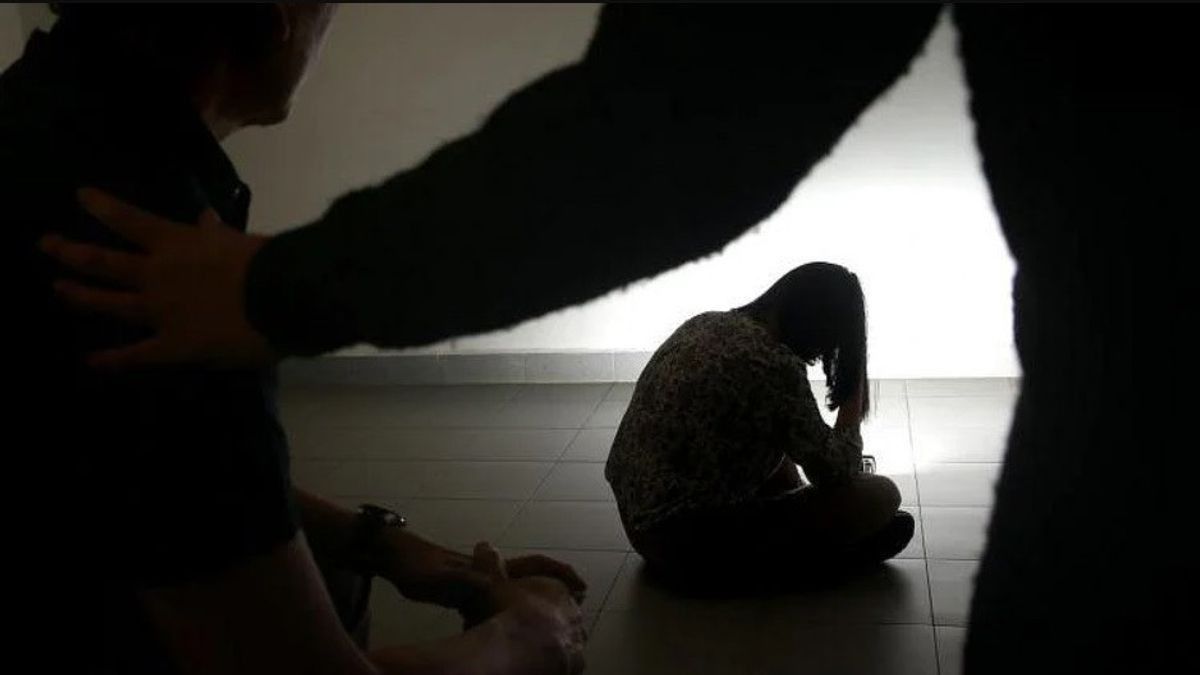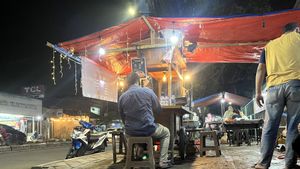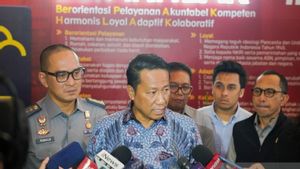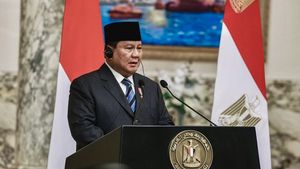JAKARTA - The case of alleged sexual harassment that befell a student at Gunadarma University, Depok on December 2 was not the first. Actually, according to a report by @anakgundardotco, many other Gunadarma students have claimed to have been victims since the last two years. It's just that it hasn't been exposed.
"One of the reasons why the case has not been uploaded on our social media is because we have not received approval from the victim. The majority of victims reasoned that they were not able or were still traumatized," wrote the creative media account and information managed by the Gunadarma student in a caption on December 11, 2022.
Not only Gunadarma students, but there are also victims from other universities. This confirms that the safe space for women is getting narrower. Sexual harassment cases in educational circles, especially universities, still occur.
In the 2017-2021 period alone, Komnas Perempuan recorded 35 cases. The potential for not reporting may be more than recorded. This is because not all victims have the determination to report what they have experienced to the campus, to the police, to the Komnas Perempuan partner institution, or to an institution to assist victims of sexual violence.
The reason, according to the Deputy Secretary General of the Indonesian Forensic Doctors Association (PDFI) Baety Adhyati, is very diverse. It could be because it receives threats from the perpetrators, there is a power relationship between the victim and the perpetrator, or because of stigma in society.
So, many cases finally lost. For example, the family moved due to stigma from their social environment, or then the child finally left or dropped out of school," Baety said in an online press conference last October.
The Ministry of Education, Culture, Research and Technology (Kemendikbud Ristek), in 2020, conducted a survey of educators and education personnel at a number of universities located in the western, central and eastern regions of Indonesia.
As a result, 77 percent of lecturers admitted that sexual violence had occurred on campus. However, 63 percent of them chose not to report the cases they knew to the campus. Because, they are worried about the negative stigma of the community that will be pinned to survivors.
The survey is only a lecturer. If you include students, the figure may be even greater," said Minister of Education and Culture, Research and Technology Nadiem Makarim.
On that basis, the Ministry of Education and Culture, Research and Technology, issued the Minister of Education and Culture's Regulation Research and Technology Number 30 of 2021 concerning the Prevention and Handling of Sexual Violence (PPKS) in Higher Education.
"We as the government have realized that this is an emergency situation. That is why we issue a Permendikbud regarding sexual violence. It has happened everywhere, we need strict rules. There is no such thing as learning if there is no feeling of security and comfort on campus," he added.
The goal is to grow campus life that is humane, dignified, equivalent, inclusive, collaborative, and without violence among students, educators, education staff, and campus residents in universities.
Sexual harassment in the Regulation of the Minister of Education and Culture Research and Technology Number 30 of 2021 includes actions that are carried out verbally, unphysically, physically, and/or through information and communication technology. Covering 21 points, among others, touching, wiping, touching, hugging, hugging, kissing and/or wiping parts of the victim's body without the consent of the victim.
And, persuading, promising, offering something, or threatening victims of sexual transactions or activities that are not approved by the victim.
Related to that, universities are required to take precautions through learning, strengthening governance, and strengthening the culture of the student community, educators, and education staff.
Learning includes requiring students, educators, and education personnel to study the prevention and handling modules of sexual harassment set by the ministry.
Not all female students have the determination to report the acts of sexual violence that happened to him to the campus or to the police. (Instagram/@anakgundardotco)
Strengthening governance, among others, by forming a task force, preparing guidelines for preventing and handling sexual harassment, providing reporting services for sexual violence, conducting periodic socialization, and placing signs of information that contain warnings that universities do not tolerate sexual violence.
"Meanwhile, strengthening the culture of the student community, educators, and education personnel is carried out in the form of communication, information, and education at least in the range of campus recognition, student organizations, and/or informal communication networks for students, educators, and education personnel," reads Article 6 paragraph (4) of the Regulation of the Minister of Education and Culture Research and Technology Number 30 of 2021.
The handling of sexual harassment is required through assistance, protection, imposition of administrative sanctions, and recovery of victims.
"Assistance in the form of counseling, health services, legal assistance, advocacy, and/or social and spiritual guidance," reads Article 11 paragraph (2) of the Regulation of the Minister of Education and Culture, Research and Technology Number 30 of 2021.
The imposition of administrative sanctions is carried out in the event that the perpetrator is proven to have sexually harassed. It was determined by the decision of the university leader based on the recommendation of the task force.
Administrative sanctions are divided into 3 categories:
In addition, universities can also give more severe administrative sanctions by considering several things, namely the victim is a person with a disability, the impact of sexual violence experienced by the victim, and/or the reported person or perpetrator is a member of the task force, head of the study program, or the head of the department.
"The imposition of administrative sanctions does not impose the imposition of other administrative sanctions and criminal sanctions in accordance with the provisions of the legislation," reads Article 18 of the Regulation of the Minister of Education and Culture, Research and Technology Number 30 of 2021.
Universities that do not prevent and handle sexual harassment, in accordance with Article 19 of these regulations, are also subject to administrative sanctions in the form of termination of financial assistance and other facilities, as well as a decrease in the level of accreditation.
Regarding the alleged sexual harassment case at Gunadarma Campus, Gunadarma University Deputy Chancellor III Irwan Bastian, on Wednesday (14/12) confirmed, "The Student Service will continue to enforce campus life rules, especially for all perpetrators of sexual violence within Gunadarma University."
Sexual violence, said Prof. Dr. Topo Santoso in the book 'Political Law Elimination of Sexual Violence in Indonesia' is an act that results in victims of violence losing their honor or dignity.
Sexual harassment against women is also a manifestation of injustice in connection with gender roles and differences. The injustice referred to is closely related to gender discrimination that applies in the construction of patriarchal communities.
"This is clearly a deviation from the principles of equality and non-discrimination as acknowledged by human rights," he added.
The English, Chinese, Japanese, Arabic, and French versions are automatically generated by the AI. So there may still be inaccuracies in translating, please always see Indonesian as our main language. (system supported by DigitalSiber.id)










